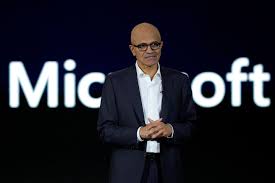Addressing a Growing Labor Crisis
Germany, a European powerhouse renowned for its robust economy and technological prowess, is facing a significant challenge: a critical shortage of skilled labor. To combat this growing crisis, the German government has announced a substantial increase in work visas for qualified Indian professionals, raising the annual quota from 20,000 to an impressive 90,000. This strategic move signifies Germany's recognition of India's vast talent pool and its potential to contribute significantly to the German economy.
A Mutually Beneficial Partnership
This initiative is not just a solution to Germany's labor shortage; it's also a testament to the growing economic ties between Germany and India. As German Labour Minister Hubertus Heil stated, "Germany views India as an especially important partner when it comes to the issue of skilled labour migration." This partnership promises mutual benefits, offering Indian professionals exciting career opportunities in a thriving economy while providing Germany with the skilled workforce it desperately needs.
Streamlining the Visa Process
Recognizing the importance of a smooth and efficient visa process, Germany has taken significant steps to reduce waiting times and eliminate bureaucratic hurdles. The government has implemented 30 new migration measures, including the digitalization of visa applications, with the goal of reducing processing times to a mere two weeks. This expedited process will benefit an estimated 400,000 skilled workers, making it easier for them to relocate to Germany and contribute their expertise.
Bridging the Gap: Focus on Key Sectors
The increased visa quota will primarily target skilled professionals in sectors experiencing acute shortages, such as information technology, nursing, and caregiving. These sectors are vital to Germany's continued economic growth and social well-being, and the influx of skilled Indian workers will play a crucial role in filling critical gaps and ensuring continued development.
Overcoming Challenges: Language and Integration
To further facilitate the integration of Indian workers into German society, the government is actively addressing potential challenges. The Federal Labour Office is providing guidance and support to Indian students already in Germany, helping them navigate the job market and explore career opportunities. Additionally, language courses are being offered to help Indian migrants overcome the language barrier and smoothly transition into their new lives in Germany.
The Economic Imperative: Filling the Void
Despite having the second-lowest unemployment rate among G7 countries, Germany faces a staggering number of job vacancies – over 700,000 in 2024 alone. This paradox highlights the demographic challenges facing the country. With a declining birth rate and an aging population, Germany's current workforce is simply not large enough to meet the demands of its thriving economy. The increased reliance on skilled foreign workers, particularly from India, is essential to maintain economic momentum and secure future prosperity.
A Win-Win Situation
The increase in work visas for Indian professionals is a strategic move that benefits both countries. It provides skilled Indian workers with access to a dynamic job market and promising career prospects, while simultaneously addressing Germany's critical labor shortage and bolstering its economic growth. This initiative is a testament to the power of international collaboration and the mutual benefits that can be achieved through the exchange of talent and expertise.
Expanding on the Details: A Deeper Dive
To truly understand the significance of this development, let's delve deeper into the various facets of this initiative and explore its potential impact on both Germany and India.
Germany's Labor Crisis: A Closer Look
While Germany boasts a low unemployment rate, the country is grappling with a severe shortage of skilled labor across various sectors. This shortage is primarily driven by two key factors:
Demographic Changes: Germany's population is aging rapidly, with a declining birth rate and an increasing number of retirees. This demographic shift has resulted in a shrinking workforce, leaving many positions unfilled.
Skills Gap: The rapid pace of technological advancements has created a demand for specialized skills that are in short supply within the domestic workforce. Industries such as IT, engineering, and healthcare are particularly affected by this skills gap.
The shortage of skilled labor poses a significant threat to Germany's economic growth and competitiveness. It can lead to production bottlenecks, delays in innovation, and a decline in overall productivity. To address this challenge, Germany is actively seeking skilled workers from abroad, and India, with its vast pool of qualified professionals, has emerged as a key partner.
India's Talent Pool: A Valuable Resource
India boasts a large and young population, with a significant proportion possessing the skills and qualifications that Germany seeks. The country's education system produces a steady stream of graduates in fields such as engineering, IT, and healthcare, making India an ideal source of talent for Germany's labor market.
Moreover, Indian professionals are known for their strong work ethic, adaptability, and English language proficiency, making them well-suited to thrive in the German work environment. The cultural exchange and knowledge transfer that will result from this influx of Indian talent will further enrich both societies.
The Benefits for India
The increase in work visas for Indian professionals offers several benefits for India as well:
Enhanced Employment Opportunities: It provides skilled Indian workers with access to a wider range of job opportunities and the chance to gain international work experience.
Remittances: The income earned by Indian workers in Germany can contribute significantly to India's economy through remittances.
Skills Development: Exposure to the German work environment and advanced technologies can enhance the skills and knowledge of Indian professionals, benefiting the Indian economy upon their return.
Strengthened Bilateral Relations: The increased collaboration in the field of labor migration can further strengthen the economic and diplomatic ties between India and Germany.
Addressing Concerns and Challenges
While the increase in work visas is a positive development, it's important to acknowledge and address potential concerns and challenges:
Brain Drain: The outflow of skilled professionals could potentially lead to a brain drain in India, depriving the country of valuable talent.
Integration Challenges: Indian workers may face challenges integrating into German society due to cultural differences and language barriers.
Exploitation: There is a risk that some workers may be exploited or face unfair working conditions.
To mitigate these challenges, it's crucial for both governments to implement measures that protect the rights of migrant workers, promote integration, and ensure fair treatment. Germany's efforts to streamline the visa process, provide language training, and offer support services are steps in the right direction.
A Long-Term Perspective
The increase in work visas for Indian professionals is not just a short-term solution to Germany's labor shortage; it's a strategic investment in the future. By attracting and retaining skilled foreign workers, Germany can ensure its continued economic growth and competitiveness in the global arena.
This initiative also has the potential to foster deeper collaboration between India and Germany in various fields, including education, research, and innovation. The exchange of knowledge and expertise between the two countries can lead to mutual benefits and contribute to global progress.
Conclusion
Germany's decision to significantly increase work visas for skilled Indian professionals is a bold and forward-thinking move that addresses a critical need while fostering international cooperation. This initiative offers a win-win situation for both countries, providing valuable opportunities for skilled workers and contributing to economic growth and development.
By embracing diversity and welcoming talent from around the world, Germany is setting an example for other nations facing similar demographic challenges. The success of this initiative will depend on the continued commitment of both governments to ensure fair treatment, promote integration, and create a welcoming environment for skilled migrants.
Additional Points to Consider
The role of the European Union: Germany's efforts to attract skilled workers from India align with the broader European Union strategy to address labor shortages and promote economic growth.
The impact on other countries: The increased focus on Indian talent may have implications for other countries that also supply skilled workers to Germany.
The long-term impact on demographics: The influx of skilled migrants could have a positive impact on Germany's demographics, potentially mitigating the effects of an aging population.
The potential for innovation: The diverse perspectives and skills brought by Indian professionals could contribute to increased innovation and creativity in the German economy.
The increase in work visas for Indian professionals is a dynamic and evolving situation with far-reaching implications. It's a testament to the interconnectedness of the global economy and the importance of international collaboration in addressing shared challenges. As the world becomes increasingly interconnected, initiatives like this will play a crucial role in shaping a more prosperous and inclusive future for all.


























0 Comments